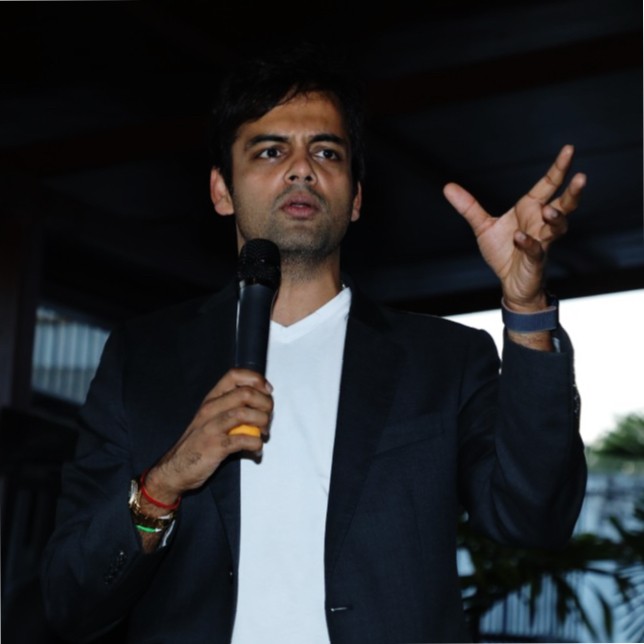1Mby1M Virtual Accelerator Investor Forum: With Anirudh Damani, Managing Partner at Artha Venture Fund (Part 1)

Anirudh Damani is the Managing Partner at Artha Venture Fund. We have a terrific discussion on the Indian Startup Ecosystem and its trends.
Sramana Mitra: Let’s get you acquainted with the audience. Tell us a bit about Artha and your background.
Anirudh Damani: I have had a very interesting journey to becoming a venture capitalist. I started out as a door-to-door salesman in Texas. During my first seven months at the job, I knocked on a hundred doors a day. I was responsible for selling long-term energy power contracts to homeowners in West Texas.
After seven months, I have tasked to set up a commercial energy team. That was my initiation to business for the first time. Within five years, I was managing close to 500 people in sales across the US. I turned to entrepreneurship towards the end of 2009 when the business I was working in got strapped for cash during the great recession. I ran the business for three years with a couple of friends.
I sold my portion in 2012 and moved back to India with the sole intent of creating something in infrastructure within India. However, when I got to India, it was a very different world than what you see today. I had a very tough time getting started in India. They say the best ventures are built out of personal pain points. I decided to invest in startups, because my pain point was how to do business in India.
Over the course of the next eight years, I built a portfolio of almost 70 startups. Many of them have become household names in India and globally. Then we set up this venture capital fund in 2019. At that time, it was India’s first micro-VC fund. We went out to raise $15 million. We ended up raising $33 million. That journey is becoming much larger. We’re about to launch our second fund to continue investing in the winners of the first portfolio. We’ve had fantastic stories. I’m looking forward to sharing them.
Sramana Mitra: Let’s talk about the fund positioning. What do you like to invest in? Is it B2B or B2C?
Anirudh Damani: We are currently investing in three themes – direct-to-consumer, direct-to-consumer enablers, and B2B SaaS. B2B SaaS has been a feature of my last 10 years. Probably 40% of the portfolio has been B2B SaaS. We usually come into a company at the seed plus stage. We invest anywhere between $200,000 and $600,000. We have allocations to double-down on the same companies all the way up to Series A.
70% of our fund has been allocated for follow-on investing. That has helped us maximize our position and our investment in firms that are doing very well. The founders also have a lot of security knowing they don’t have to keep going out to the market to raise further funds as long as they’re doing well.
Sramana Mitra: Let’s double-click down on the stage. When you write your first check into a deal, what do you want to see? It’s late-seed which means you want to see metrics. What are those metrics in B2C and what are those metrics in B2B SaaS?
Anirudh Damani: Usually, we want to see at least about $10,000 in revenues. We want to see a build out of the team. We want to see a product that is beyond the MVP stage because we’re looking at actual sales.
One of the things that we also see qualitatively is what is the kind of sales you’re getting. The sales data tells you exactly who your customers are. We want that kind of validation coming in from your sales data and that’s usually the time we start to invest in a company. It’s seed plus because it’s beyond being just an idea. A lot of data can get validated by looking at the kind of sales you’re getting and the repeat rate from those customers.
This segment is part 1 in the series : 1Mby1M Virtual Accelerator Investor Forum: With Anirudh Damani, Managing Partner at Artha Venture Fund
1 2 3 4 5 6
Featured Videos
Can 1M/1M Help Me Raise Money?
How Does 1M/1M Democratize Entrepreneurship Education?
How Does 1M/1M Democratize Management Consulting?
When Is The Right Time To Join 1M/1M?
Can 1M/1M Help Me With Business Development?
Can 1M/1M Help Me With Market Sizing?
Can 1M/1M Help Me Validate My Product?
Will I Have Private 1-on-1 Sessions In 1M/1M?
How Does 1M/1M Help Entrepreneurs Connect With Silicon Valley?
Mentoring or Consulting?
Why Does 1M/1M Charge $1000 a Year?
Why Does 1M/1M Partner With Local Organizations?
Why Don\’t Mentoring Networks Work?
Why Is It Important To Study With 1M/1M Now?
Dan Stewart Story
Vikrant Mathur Story
